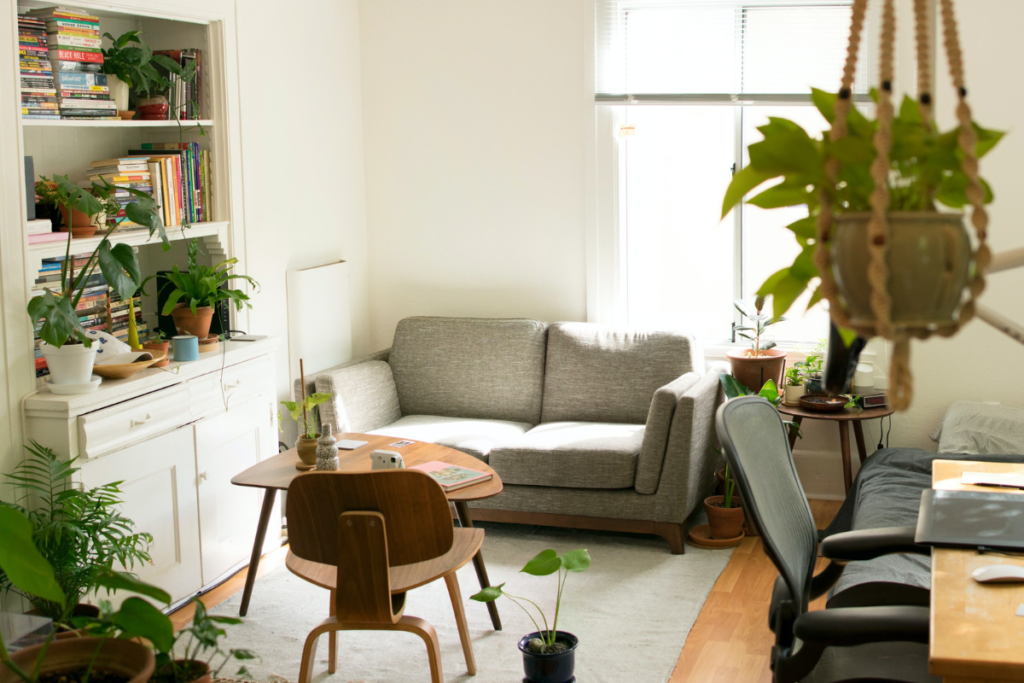
Renting in France can be a dirty business, especially if you don’t know what you’re doing. From rogue landlords charging 800€ for a 16m2 apartment with the toilet next to your oven, telling you that’s normal to submit your dossier for a place just to later find out your identity has been stolen – we’re here to make sure to teach you the ropes for a successful experience if you need to rent an apartment in France!
Remember: Depending on which city you move to, rent will be higher or lower. Here is a fun website where you can check the average for different cities.
Also check our our blog on how to avoid scams, there are many in this space!
When should I start looking for an apartment to rent in France?
I would recommend you start looking up to 3 months before your move to find something nice. Option 2 is to find something for a short period of time, move, and then find the final apartment you want to stay at from there.
Most movement happens during autumn when the students arrive, they typically start their search May – August, so avoiding these peak seasons or being faster than them can help you. Keep your dossier to date, always, so you can be ready at a moment’s notice!
Depending on your financial situation you can look for an apartment/house on your own, research the world of flatshares or look for “free” accommodation, mostly in exchange for services like childcare or custodial duties.
Moving TO DO list:
- Find an apartment you like
- Submit your Dossier
- Get your Rental Agreement
- Moving Day Checklist
4 Steps to renting an apartment in France:
Step 1: Know what you are looking for
This ranges from knowing what type of property you are looking for (flat, studio, house) to which city (Lyon, Toulouse, Lille) all the way to which district of this city – it all helps narrow down your search and be specific.
You’ll be able to set up search alerts and get a feel for what is out there, and how much it can cost you.
Do you want to share or live alone, do you have pets, do you need to be close to public transport – make a list, your future self will thank you!
A pro tip is to know which neighborhood you want to go to, most cities are very diverse so living in a student quarter or with the retirees can make a huge impact on your quality of life.
Step 2: Go on the Hunt
There are countless websites where you can search for apartments to rent in France, but I’ll start with the most valuable one first, as it has helped me find my dream apartment:
- https://www.jinka.fr/ – You sign up, plug in what you are looking for, and it will dispatch little robots to all renting websites and send you only those that match what you are looking for – priceless
- https://www.pap.fr/ has a mix of professional and personal landlords
- https://www.seloger.com/ is probably the most classic website most people will refer to
- https://www.leboncoin.fr/locations/offres careful with this one, it’s the gumtree/craigslist of France, so you’re likely to run into scams
There are countless more, but the above are “the classics” and always a safe bet. Also remember that you can ask an agency to find you an apartment to rent, just remember that they take commission for their work (google: “agence+location+your city”).
Shared Accommodation: If you are looking to join a flashare, there are several ways to do this
- Facebook – there will be a group for the place you are looking for, find it and join it
- Word of Mouth – someone will always know someone who is looking for a flatmate – just be sure to tell people you’re looking so you become an option. If you work in an office or go to university you’ll probably have plenty of people looking to match up.
- Here are some websites where you can also sign up and see if you find a flatmate:
Bonus: Here is an original solution I stumbled upon https://hackerhouse.world/
Step 3: Apply
Bear in mind that the housing market, renting or buying, is super competitive – speed and precision are your best friends. The best strategy is to go on the hunt with your Dossier already ready to send.
Once you find a place you like, you can apply while showing that you are a good candidate, and the landlord will look upon your application more favourably than someone who asks 20 questions before submitting their Dossier.
You can always ask questions later, before signing a contract. In cities like Paris it’s not unusual to have hundreds of candidates for one apartment, so if you don’t get this one, don’t take it personally, it’s completely normal. Some landlords will ask for a Guarantor which we cover in this article, and it’s better to have a bank account set up already so you can prove you can automatically pay rent.
Step 4: Move & Set Up
If you are successful in your search, you will pay a deposit and sign your rental contract. Remember to clarify the situation about the energy bills, we advise to take these matters into your own hands (just in case). Like with most rental agreements you will have an inventory, in French the “état des lieux“. Try to document everything to protect yourself once it’s time to move out. After this step you will have the keys, you can get started – our Moving Day Checklist is an amazing help (we think).The most pressing items are to get yourself set up with internet & energy, there are French startups such as Papernest who can simplify this for you and help with the transition.
Fun Legal Facts:
Furnished and Unfurnished Apartments are treated differently – read more about it in our contract section. Also, if you need help equipping your apartment, we wrote a blog about this.
Furnished apartments legally need to be equipped with a bed + bedding, a table and seating, storage shelves, lighting, a fridge, freezer, crockery and kitchen utensils.


